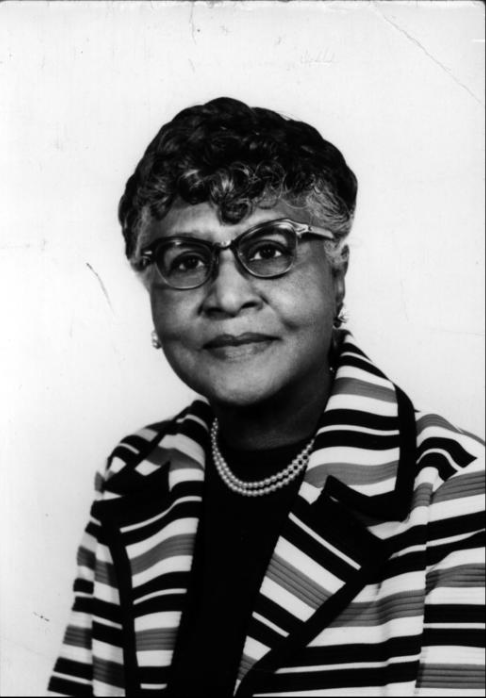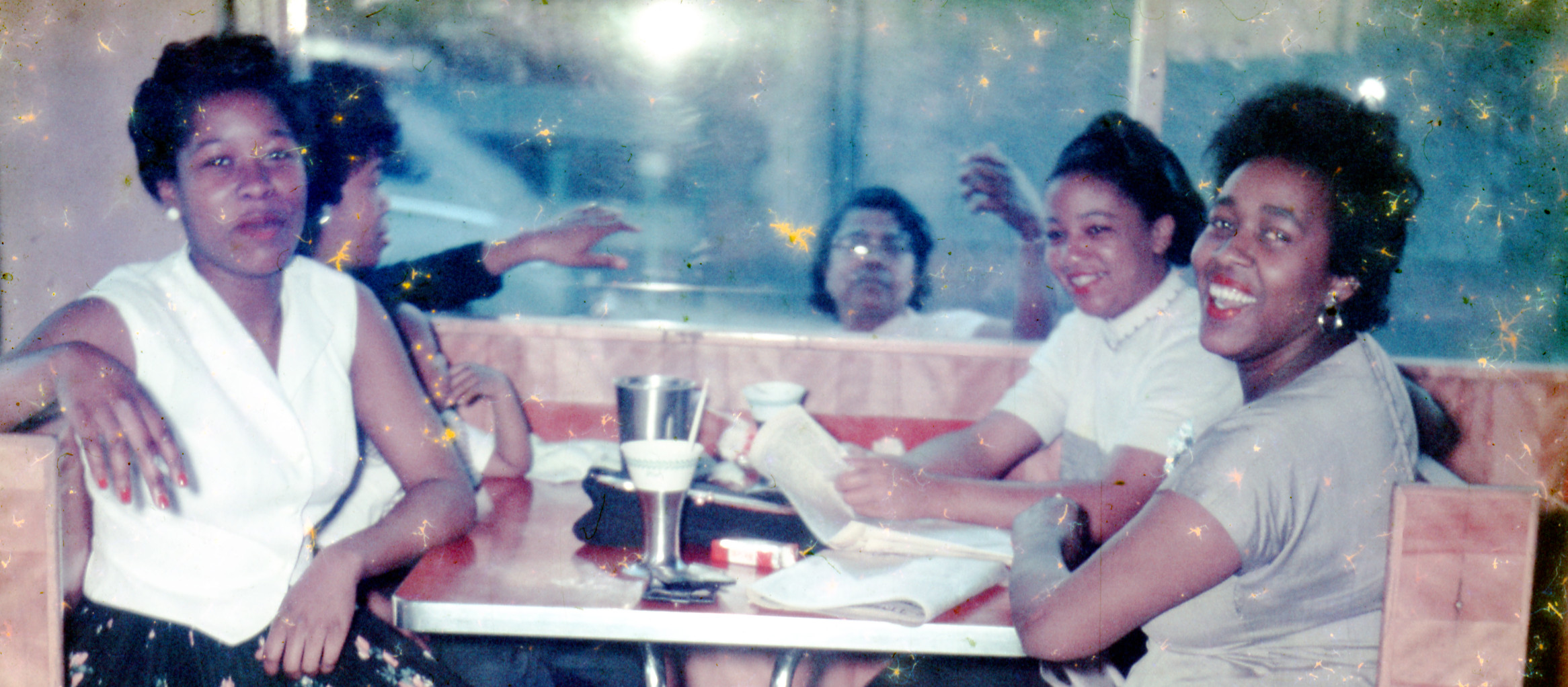
Lucy Saunders Herring was born in October of 1900 in Union, South Carolina, a small mill town where her grandparents, who were formerly enslaved, settled after their emancipations. In Helen Mosley Edingtons book, Angels Unaware, she describes how her grandparents gained their freedom.
“My mother had a white half-sister. My grandmother had been a wedding gift to the white town doctor and his wife. The two offspring from his wife and the wedding gift grew up in a good relationship until slavery ended. My grandmother, Lucy, chose to move to Union South Carolina. My paternal grandfather bought his freedom and his wife’s freedom.”1Moseley-Edington, Helen. Angels Unaware: Asheville Women of Color. Asheville, NC: Home Press 1996.
The oppression of poverty and racist violence that Herring witnessed and experienced as a child in Union inspired her to seek an education. She studied at Northwestern University, Duke University and received her Bachelors of science at Hampton University, an Historically Black College or University (HBCU) in Hampton, Virginia. She first came to Buncombe County in 1914, and found herself teaching in a one room schoolhouse in Swannanoa, when she was sixteen years old. In 1920 she started teaching at Hill Street Elementary in Asheville, and in 1923 she moved away from Western North Carolina for twelve years. She obtained her master’s degree from Chicago University and worked as a supervisor with Harnett County Public Schools. While working in Harnett County, NC she met her husband, Asa D. Herring, Sr. The couple moved to Asheville in 1935, and Lucy S. Herring started working at Stevens-Lee High School. More information on these schools and other schools for non-white children in Asheville during segregation can be found in the schools section of the Heritage of Black Highlanders Collection.
In 1941, Herring became the principal of Mountain Street School, which would later be renamed Lucy S. Herring School in 1961. From 1949-1964 She would serve Asheville and Buncombe County Public Schools as an Elementary Supervisor. During her career in education, she became a champion of literacy and was firmly opposed to the practice of “social promotion” of students. “Social promotion to me was a no-no. Children remained in a class until they could read when I came along in elementary school.”2Moseley-Edington, Helen. Angels Unaware: Asheville Women of Color. Asheville, NC: Home Press 1996
While she excelled as an educator, she was still bound by racist policies enforced by the city and administration. During work meetings, she and the other African American teachers were segregated to the balcony, while white teachers could be on the main floor of the meeting room. Amongst colleagues, she was commonly referred to by her first name, while white women of similar professional caliber were addressed by a formal title. Before integration,when attending out of town conventions, she was required to pay for her own travel fees, while white administrators’ fees were paid for with the school budget. But she did not allow these hostilities to limit her ambition, “Nothing stopped me in my quest to help others. I tried to influence administrators and teachers to be their best by being positive and honest…Resentment would have impeded relations and destroyed effectiveness.”3Moseley-Edington, Helen. Angels Unaware: Asheville Women of Color. Asheville, NC: Home Press 1996
Outside of her career, Herring was engaged and influential in the Asheville community. She was a member of several civic organizations such as the Retired Teachers Association, the Advisory Council on Ethnic Heritage at Warren Wilson College, the NAACP, the Council on Aging, and the Asheville City and Buncombe County Human Relations Council. She was also a member of the Asheville Chapter of the American Association of University Women, who sponsored a scholarship in her name, and the Gamma Gamma Omega Chapter of Alpha Kappa Alpha Sorority, who named her woman of the year in 1971. She served as a consultant to Religious Literature for Children for the Larry P. Davis publishing company. Other honors she received were receiving a service key form the Zeta Phi Beta Sorority for Finer Womanhood, and she was featured in the Chamber of Echoes by the Optimist Club in 1987.
Even after she left the Asheville and Buncombe county School systems, Herring persisted in her advocacy for literacy. She founded, and then for fifteen years, directed, the Reading Clinic for Teachers at North Carolina College at Durham, which is now North Carolina Central University, the first HBCU to become publicly funded in North Carolina. Between 1964-1968, Herring worked as an Associate Professor and Director of Reading at Livingstone College, another HBCU in Salisbury, NC.
In 1983, she published the book, Strangers No More, to honor her parents and the achievements of African American educators. In 1987 she became the director of the Black Highlanders’ Research Project at UNCA. This research project produced a manuscript and photograph collection dating from 1888-1972. Along with donated materials and collaborations from individuals and community organizations, Herring created this manuscript that documents the presence and contributions of African Americans in Western North Carolina.
On October 21, 1995, Lucy Saunders Herring died, just three days before her 95th birthday. She had moved to Phoenix, Arizona to be with her son, Asa D. Herring and his wife, Honor Herring. She lived with them until her death.
